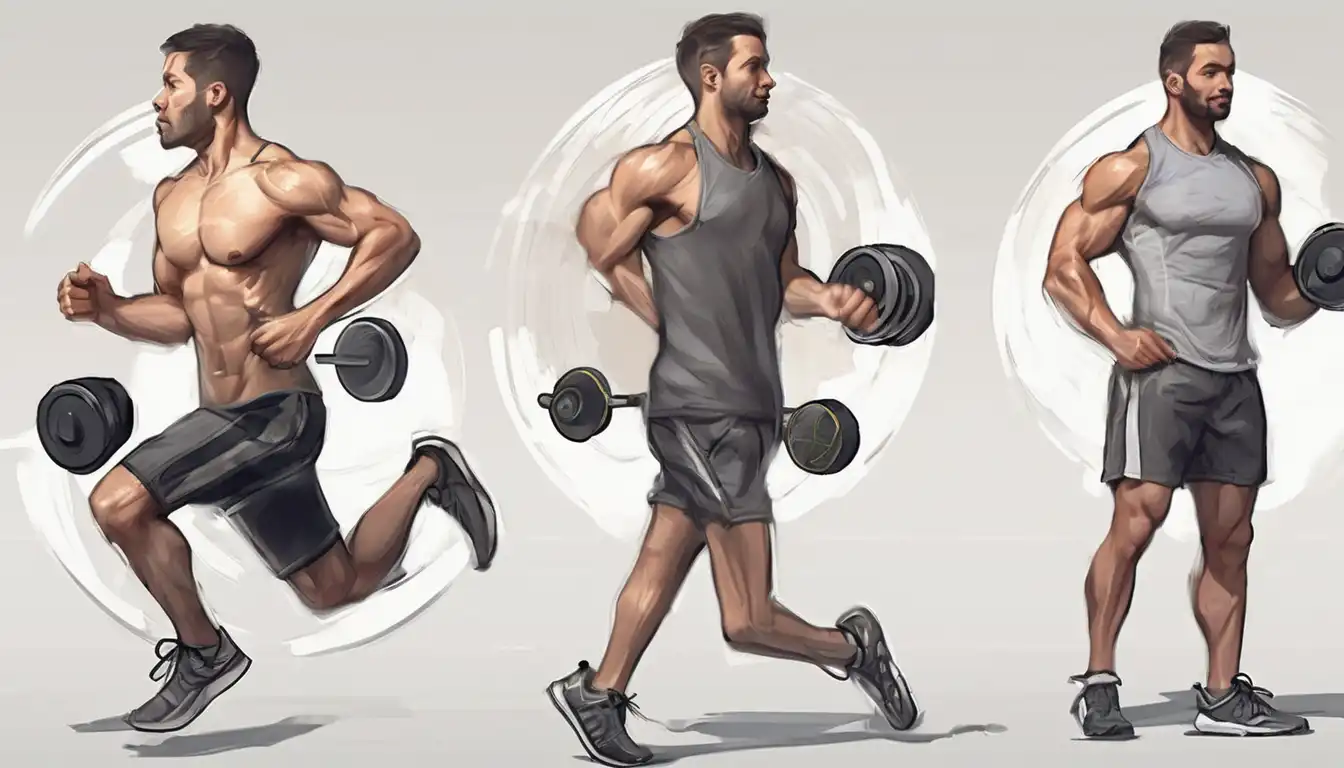Getting Started with Your Fitness Journey
Embarking on a fitness journey can feel overwhelming, especially if you're new to exercise. Whether you want to lose weight, build strength, or simply improve your overall health, starting a fitness routine is one of the best decisions you can make for your wellbeing. This comprehensive guide will walk you through everything you need to know to begin your fitness journey with confidence.
Why Start a Fitness Routine?
Regular exercise offers numerous benefits beyond just physical appearance. Consistent physical activity can boost your energy levels, improve mental health, reduce stress, and lower your risk of chronic diseases. Many beginners find that once they establish a routine, they experience better sleep, increased confidence, and improved overall quality of life.
Assessing Your Current Fitness Level
Before diving into any workout program, it's crucial to assess your current fitness level. Be honest with yourself about your strengths and limitations. Consider factors like your endurance, flexibility, and any existing health conditions. If you have concerns, consult with a healthcare professional before starting any new exercise regimen.
Setting Realistic Goals
Setting achievable goals is essential for maintaining motivation. Instead of vague objectives like "get fit," create specific, measurable goals such as "walk 30 minutes daily" or "complete three strength training sessions per week." Remember that progress takes time, and small, consistent efforts yield the best long-term results.
Choosing the Right Type of Exercise
There are four main types of exercise to consider incorporating into your routine:
Cardiovascular Exercise
Cardio exercises get your heart pumping and improve cardiovascular health. Beginner-friendly options include brisk walking, cycling, swimming, or using an elliptical machine. Start with 20-30 minutes of moderate-intensity cardio 3-4 times per week.
Strength Training
Building muscle helps boost metabolism and improves overall strength. Beginners can start with bodyweight exercises like squats, push-ups, and planks before progressing to weights. Aim for 2-3 strength sessions weekly, focusing on different muscle groups.
Flexibility and Mobility
Incorporating stretching and mobility work helps prevent injuries and improves range of motion. Consider adding yoga or simple stretching routines to your regimen, especially after workouts when muscles are warm.
Balance Exercises
Balance training is often overlooked but crucial for overall fitness and injury prevention. Simple exercises like single-leg stands or tai chi can significantly improve your stability over time.
Creating Your Weekly Schedule
Design a balanced weekly schedule that includes variety. A sample beginner schedule might include:
- Monday: 30-minute walk and full-body stretching
- Tuesday: Strength training (upper body focus)
- Wednesday: Active recovery (light yoga or walking)
- Thursday: Strength training (lower body focus)
- Friday: 30-minute cardio session
- Saturday: Active fun (hiking, dancing, sports)
- Sunday: Rest day
Essential Equipment for Beginners
You don't need expensive equipment to start your fitness journey. Basic items include comfortable workout clothes, supportive shoes, a water bottle, and perhaps a yoga mat. As you progress, you might consider resistance bands, dumbbells, or a fitness tracker.
Home vs. Gym Workouts
Both home and gym workouts have advantages. Home workouts offer convenience and privacy, while gyms provide equipment variety and professional guidance. Choose what works best for your lifestyle and budget.
Proper Form and Technique
Learning proper form is crucial for preventing injuries and maximizing results. Consider working with a personal trainer initially or using reputable online resources to ensure you're performing exercises correctly. Focus on quality over quantity, especially when starting.
Nutrition and Hydration
Exercise alone isn't enough – proper nutrition fuels your workouts and recovery. Stay hydrated by drinking water throughout the day, and focus on balanced meals containing lean proteins, complex carbohydrates, healthy fats, and plenty of fruits and vegetables.
Pre- and Post-Workout Nutrition
Eating a light snack 1-2 hours before exercising provides energy, while post-workout nutrition helps with recovery. A banana with peanut butter or a protein shake are excellent options depending on your workout intensity.
Tracking Your Progress
Monitoring your progress helps maintain motivation and allows you to adjust your routine as needed. Consider keeping a fitness journal, taking progress photos, or using fitness apps to track your workouts, measurements, and how you feel overall.
Celebrating Milestones
Acknowledge and celebrate your achievements, no matter how small. Completed your first week of consistent exercise? That's worth celebrating! Recognizing progress helps build positive associations with your new routine.
Common Beginner Mistakes to Avoid
Many beginners make similar mistakes that can hinder progress or lead to injury:
- Starting too intensely and burning out quickly
- Comparing yourself to others
- Skipping warm-ups and cool-downs
- Neglecting rest and recovery days
- Not listening to your body's signals
Staying Motivated Long-Term
Maintaining motivation is often the biggest challenge for beginners. Try these strategies to stay committed:
- Find an accountability partner
- Mix up your routine to prevent boredom
- Set new goals as you achieve existing ones
- Focus on how exercise makes you feel rather than just appearance
- Be patient and kind to yourself during setbacks
When to Seek Professional Guidance
If you have specific health concerns, injuries, or ambitious fitness goals, consider consulting with professionals. Personal trainers, physical therapists, and nutritionists can provide personalized guidance tailored to your needs.
Final Thoughts
Starting a fitness routine is a journey that requires patience, consistency, and self-compassion. Remember that every expert was once a beginner, and the most important step is simply getting started. Focus on building sustainable habits rather than seeking quick fixes, and trust that your efforts will yield meaningful results over time.
Your fitness journey is unique to you – embrace the process, celebrate small victories, and enjoy the positive changes that regular exercise brings to your life. For more fitness tips and guidance, explore our other health and wellness articles to support your ongoing journey toward better health.
